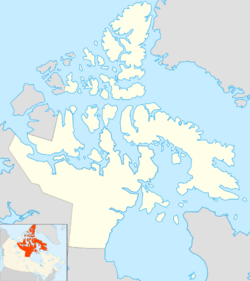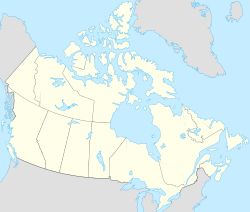Royal Geographical Society Islands facts for kids
|
Native name:
Hiurarjuaq
|
|
|---|---|
| Geography | |
| Location | Northern Canada |
| Coordinates | 68°56′N 100°15′W / 68.933°N 100.250°W |
| Area | 458 km2 (177 sq mi) |
| Administration | |
|
Canada
|
|
| Territory | Nunavut |
| Demographics | |
| Population | Uninhabited |
| Ethnic groups | Inuit |
The Royal Geographical Society Islands are a group of islands located in the far north of Canada. They are found west of King William Island in an area called Victoria Strait, which is part of the Queen Maud Gulf. These islands are located in the Canadian territory of Nunavut.
The local Inuinnaqtun name for these islands is Hiurarjuaq, which means "big sand".
Contents
Discovering the Royal Geographical Society Islands
These islands were named by a famous explorer named Captain Roald Amundsen. He named them after the Royal Geographical Society, an organization that helped fund his expeditions.
Who Explored These Islands?
Before Amundsen, another explorer named John Rae had seen these lands. However, Rae did not realize they were separate islands. It was Amundsen who correctly identified them as a group of islands.
What is the Largest Island?
The biggest island in this group is also called Royal Geographical Society Island. It covers an area of 458 square kilometers (about 177 square miles).
Naming Davidson Point
One specific spot on the islands, Davidson Point, is named after a geographer named George Davidson. Geographers are people who study the Earth's physical features and human activity.
Life on the Islands
The Royal Geographical Society Islands are currently uninhabited, meaning no people live there permanently. However, the Inuit people are the traditional inhabitants of this region of Canada.
 | Chris Smalls |
 | Fred Hampton |
 | Ralph Abernathy |



